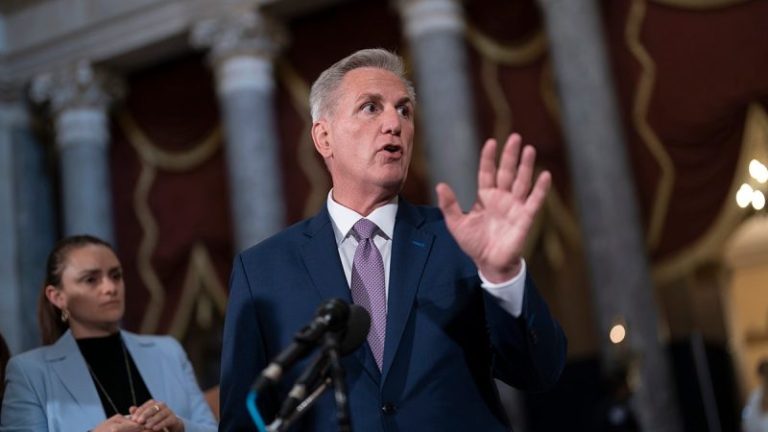CVS found the right prescription Wednesday to keep its stores open in the Kansas City area and avoid a repeat of a work stoppage last week by pharmacists: It promised to boost hiring to ease workloads that sometimes make it hard to take a bathroom break.
But it won’t be easy to resolve the problems that have been growing as pharmacists at CVS and other drug stores in the U.S. took on more duties in recent years and are gearing up to deliver this year’s latest flu and COVID-19 vaccines.
“It all relates to not enough dollars going in to hire the appropriate staff to be able to deliver the services,” said Ron Fitzwater, CEO of the Missouri Pharmacy Association.
Pharmacists in at least a dozen Kansas City-area CVS pharmacies did not show up for work last Thursday and Friday and planned to be out again this Wednesday until the company sent its chief pharmacy officer with promises to fill open positions and increase staffing levels.
It was one of the latest examples nationwide of workers fed up enough to take action. But unlike in the ongoing strikes at the automakers or in Hollywood, the pharmacists weren’t demanding raises or more vacation, but more workers to help them.
CVS spokeswoman Amy Thibault said the company is “focused on addressing the concerns raised by our pharmacists so we can continue to deliver the high-quality care our patients depend on.”
Chief Pharmacy Officer Prem Shah apologized for not addressing concerns sooner in a memo to Kansas City-area staff that was obtained by USA Today. He promised to remain in the city until the problems are addressed and come back regularly to check on the progress.
“We want you, our valued pharmacy teams, to be in a position to succeed. We are working hard to support you and are here to help and create sustainable solutions,” Shah said as he encouraged the pharmacists to continue to share their concerns even anonymously.
It’s unclear why workload concerns that are common industrywide led to a work stoppage in Kansas City. The pharmacists involved are not in a union and haven’t spoken publicly, so it’s not entirely clear how satisfied they are with the company’s response.
Jeff Jonas, a portfolio manager for Gabelli Funds, said there’s a nationwide shortage of pharmacy workers, prompting companies to push long work hours with few bathroom and lunch breaks. At the same time, the industry is “not really unionized, so I wouldn’t expect a big, coordinated action” to be inspired by the Kansas City demonstration, he said.
At stores with only one pharmacist on duty, the pharmacy has to shut down every time that person leaves the area because a pharmacist must be present to supervise technicians in their work.
The American Pharmacists Association said in a statement that it supports the stand the Kansas City pharmacists took.
“Pharmacists who find themselves in situations where the welfare of others is in question should always pause, evaluate the situation, and take the steps necessary to ensure safe, optimal patient care,” the group said.
CVS Health has about 300,000 employees and runs prescription drug plans through one of the nation’s largest pharmacy benefits managers. Its Aetna insurance arm covers more than 25 million people, and the company has nearly 10,000 drugstores.
The company said last month that operating income at its drugstores fell 17% as reimbursement rates from patient’s insurance providers for drugs remained tight. CVS eliminated about 5,000 jobs, but company officials said none of those involved dealing with customers.
Bled Tanoe, a hospital pharmacist in Oklahoma who previously worked for Walgreens, runs a social media campaign called “Pizza Is Not Working” aimed at raising awareness about the industry’s working conditions. Its name comes from the pizzas that are routinely given to overwhelmed medical workers to raise morale. Tanoe said she was “wowed” by the CVS demonstration.
“They pretty much risk their reputation, their livelihood to take a stand because serving the patients is so important to them,” Tanoe said.
Amanda Applegate with the Kansas Pharmacists Association said pharmacists have always had a lot on their plate.
“When we are not valued as health care professionals, it doesn’t allow the job that needs to be done to be done,” she said. “And that’s keeping you know, patients safe — right drug, right patient, right time, right dose.”










